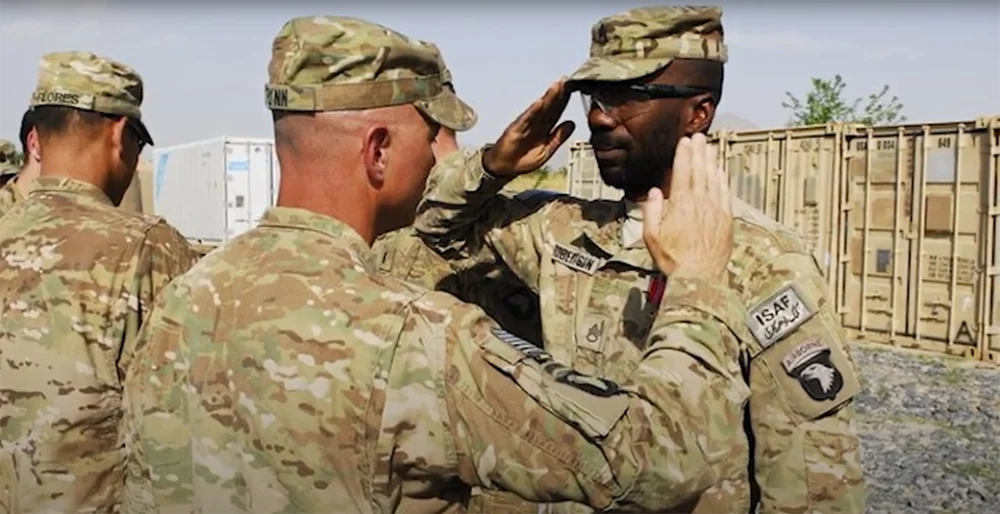

Public Sector Solutions, Workforce & Economic Mobility, Results-Based Funding
It’s been five years since the Veterans Coordinated Approach to Recovery and Employment (Veterans CARE) launched. In the time since, the program has helped improve competitive employment outcomes for unemployed, underemployed, and vulnerably employed Massachusetts veterans experiencing post-traumatic stress disorder (PTSD) and military sexual trauma (MST) through individual placement and support (IPS) services. IPS is an evidence-based approach that seeks to place participating veterans into jobs that match their needs and preferences; integrates employment services with mental health care; and provides ongoing support for as long as former service members need help sustaining employment and managing symptoms.
The program’s launch anniversary offers an opportunity for reflection on two elements that have made Veterans CARE successful: the pursuit of measurable impact and the creation of cross-sector partnerships to deliver results.
Delivering impact despite pandemic challenges
The program’s potential for measurably improving lives hinged on IPS, which presented a strong evidence base and directly filled a programmatic gap within Department of Veterans Affairs (VA) services. While the VA provides supported employment services to veterans through Veteran Readiness and Employment services, IPS takes a more intensive, individualized approach that provides higher levels of support.
After nearly two years of service delivery, Veterans CARE faced new challenges with the onset of the pandemic. Maintaining a high degree of individualized, community-based services is core to the IPS model. So, with cases rising, our service providers nimbly shifted from meeting in-person with veterans at VA facilities and other locations throughout the community to a virtual service delivery model. By pivoting to virtual services amid the pandemic and maintaining services throughout this tumultuous time, Veterans CARE providers helped temper the triggering of trauma symptoms brought on by lockdowns and social distancing.
Even with COVID-19 and the related labor market flux, the impact of the program was evident. Outcomes remained stronger than those previously reported in randomized control trials on IPS, with 58% of enrolled former service members finding competitive employment. And as the initial phase of the program wound down in 2021, the Commonwealth of Massachusetts committed to continue funding the program through an outcomes-based contract due to the program’s strong impact on veterans.
Outcomes were stronger than those previously reported in randomized control trials on IPS, with 58% of enrolled former service members finding competitive employment.
Enabling results through collaboration
Cross-sector partnership has buoyed program success, as government entities like the Commonwealth and subject area and implementation experts like VA clinical research teams and VA nonprofit corporations (VA NCPs) collaborated with our nonprofit to drive program impact.
VA NPCs hire, train, and embed IPS teams within VA settings and enable state funding to flow directly into programming for veterans. Coordination between IPS teams and VA clinical teams allows for employment services to be integrated with mental health services, resulting in more a more holistic case management approach for each Veteran. Social Finance invests Commonwealth funds and manages outcomes calculations and payments within an outcomes-based contracting structure that provides financial incentives to IPS teams for delivering strong veteran employment outcomes. And participating veterans provide positive and constructive feedback, helping create programmatic accountability.
Altogether, this innovative partnership structure has made it possible for a diversity of stakeholders to collaborate on implementing a program that fills an unmet need and achieves measurable impact.
Individual relationships constitute another crucial pillar of the program success. Building trust between the IPS specialists who deliver services and the veterans they support is essential. The IPS model emphasizes training and mentorship for IPS specialists to ensure they have the tools needed to effectively help veterans. This support, along with regular IPS fidelity reviews, helps align incentives across partners and ultimately maintain and scale the positive impact of Veterans CARE.
Together, the pursuit of measurable impact and the creation of cross-sector partnerships led to the implementation of a program that will hopefully support veterans with PTSD and MST for years to come under state stewardship, ensuring that former service members in Massachusetts have the tools they need to live fulfilling lives.
Learn more about our Public Sector Solutions →
Contact Head of Impact Advisory Jake Segal →
Related Insight

Supporting Veterans with PTSD: Enabling an Individualized Approach to Job Search and Placement
Veterans CARE embedded Individual Placement and Support (IPS) services at four VA medical centers in New York and Massachusetts. IPS prioritizes rapid job search for employment opportunities that match an individual’s needs, talents, and preferences,…